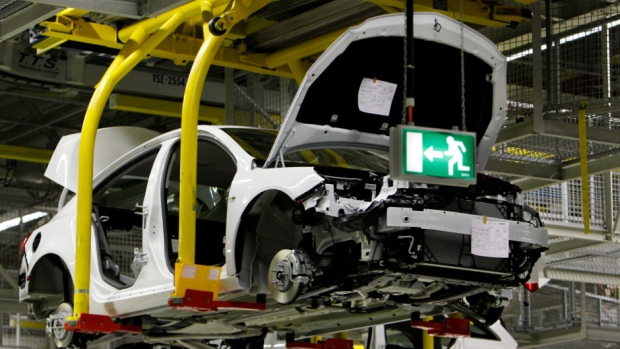Nov 8, 2017
NAFTA is a free trade agreement, not 'a free-ish' deal: Linamar CEO

Linamar Chief Executive Officer Linda Hasenfratz is urging Ottawa to hold fast against one of the key U.S. demands being tabled in NAFTA negotiations. In an interview on BNN, Hasenfratz said any imposition of a country-specific quota on car manufacturing should be an utter non-starter for Canada in NAFTA talks.
“This is a free trade agreement, not a free-ish trade agreement,” she said. “It can’t be preferential to the United States and what they want to see in their own content: it can’t happen. So I totally agree with the government’s position that they see that as a walkaway point.”
Currently, at least 62.5 per cent of a vehicle’s components must be made in Canada, the U.S. and Mexico in order for the vehicle to qualify for duty-free access to all three countries. Under American proposals, 50 per cent of every vehicle built on the continent would have to be made in the United States.
While Hasenfratz said her company could weather a return to World Trade Organization-level tariffs, she warned there would be broader economic pain if the U.S. does indeed rip up NAFTA.
“The impact to individual companies would probably not be that severe, but the impact to the economy in North America could be significant,” she said.
Hasenfratz said she doesn’t think Americans have the same level of awareness of the potentially damaging economic impact of a world without NAFTA as Canadians.
“We need to be open in talking about this, not just here in Canada, but in the United States. There’s very little attention to this whole discussion, the way we have here in Canada,” she said. “[Americans] are not understanding what the impact of these actions are going to [have] on them, their economy and their jobs.”
Linamar, Canada's second-largest auto-parts maker, missed third-quarter profit expectations, as weakness in North American light vehicle demand hit the company’s bottom line. Hasenfratz said the weaker-than-expected quarter was “an anomaly” and mostly related to the impact of recent massive hurricanes on sales.
“We are already expecting the fourth quarter to be jumping back – it's still going to be down a little from last year but only two or three per cent,” she said.